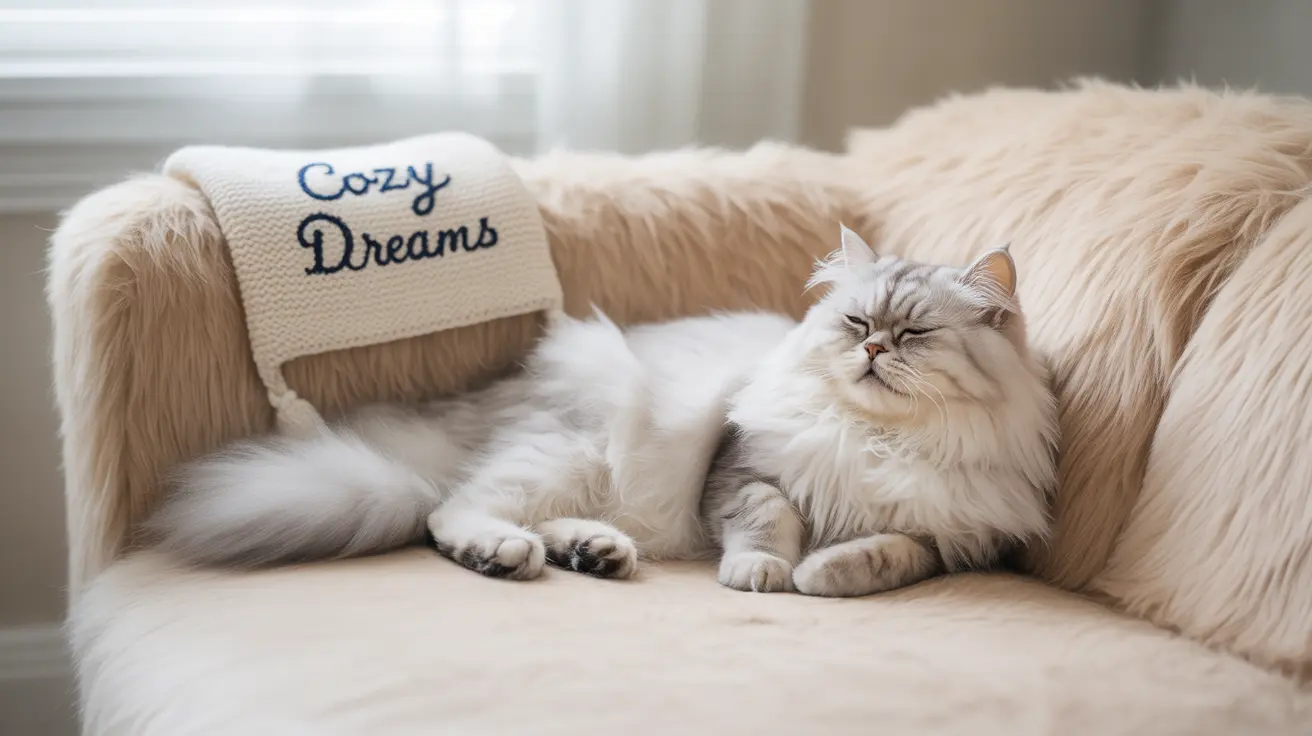Understanding Why Cats Snore
Cat snoring occurs when air movement through the upper respiratory tract becomes partially obstructed, causing the surrounding tissues to vibrate. This can happen for various reasons, from simple anatomical features to underlying health conditions.
Common Causes of Normal Cat Snoring
Many cats snore occasionally due to perfectly natural reasons:
- Relaxed sleeping positions
- Deep sleep phases
- Breed-specific facial structures
- Temporary nasal congestion
When Cat Snoring Is Normal
Some cats naturally snore without any cause for concern. This is particularly common in:
- Brachycephalic (flat-faced) breeds like Persians and Himalayans
- Cats sleeping in unusual positions
- Older cats who have developed slight anatomical changes
- Cats who have always snored since kittenhood
Warning Signs: When to Worry About Cat Snoring
While occasional snoring can be normal, certain symptoms warrant immediate veterinary attention:
- Sudden onset of snoring
- Increased frequency or volume of snoring
- Breathing difficulties or open-mouth breathing
- Unusual discharge from nose or eyes
- Changes in eating habits or energy levels
Medical Conditions That Cause Cat Snoring
Several health issues can lead to problematic snoring in cats:
- Upper respiratory infections
- Nasal polyps or tumors
- Allergies or asthma
- Dental disease
- Obesity-related breathing issues
Managing and Preventing Cat Snoring
If your cat's snoring is becoming problematic, consider these management strategies:
- Maintain a healthy weight through proper diet and exercise
- Keep living spaces clean and free from allergens
- Schedule regular veterinary check-ups
- Monitor changes in breathing patterns
- Address any underlying health conditions promptly
Frequently Asked Questions
Why does my cat snore and is it normal for certain breeds to snore more?
Cat snoring is particularly common in brachycephalic breeds due to their shortened facial structure and narrowed airways. While occasional snoring is normal for many cats, certain breeds like Persians and Himalayans are more prone to regular snoring due to their facial anatomy.
How can obesity cause snoring in cats and what can I do to reduce it?
Excess weight creates additional tissue around the throat and airways, which can obstruct breathing during sleep. To reduce obesity-related snoring, maintain your cat at a healthy weight through portion control and regular exercise, and consult with your veterinarian about a proper weight management plan.
When should I be concerned about my cat's snoring and seek veterinary care?
Seek veterinary care if you notice sudden onset of snoring, increased snoring intensity, breathing difficulties, nasal discharge, or changes in eating habits. These symptoms could indicate underlying health issues requiring medical attention.
What medical conditions can cause a cat to snore loudly or suddenly start snoring?
Several medical conditions can cause sudden or loud snoring, including upper respiratory infections, nasal polyps, allergies, asthma, and dental disease. Any sudden change in breathing patterns should be evaluated by a veterinarian.
How do veterinarians diagnose and treat snoring related to airway problems in cats?
Veterinarians typically perform physical examinations, review medical history, and may recommend additional diagnostics like X-rays or CT scans. Treatment varies based on the underlying cause and may include medications, surgery, or lifestyle changes.
Conclusion
While cat snoring can be perfectly normal, particularly in certain breeds or sleeping positions, it's important to monitor any changes in your cat's breathing patterns. By understanding what's normal for your cat and recognizing warning signs, you can ensure your feline friend receives appropriate care when needed. When in doubt, always consult with your veterinarian to ensure your cat's snoring isn't masking a more serious health concern.






